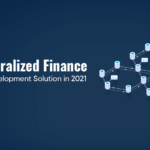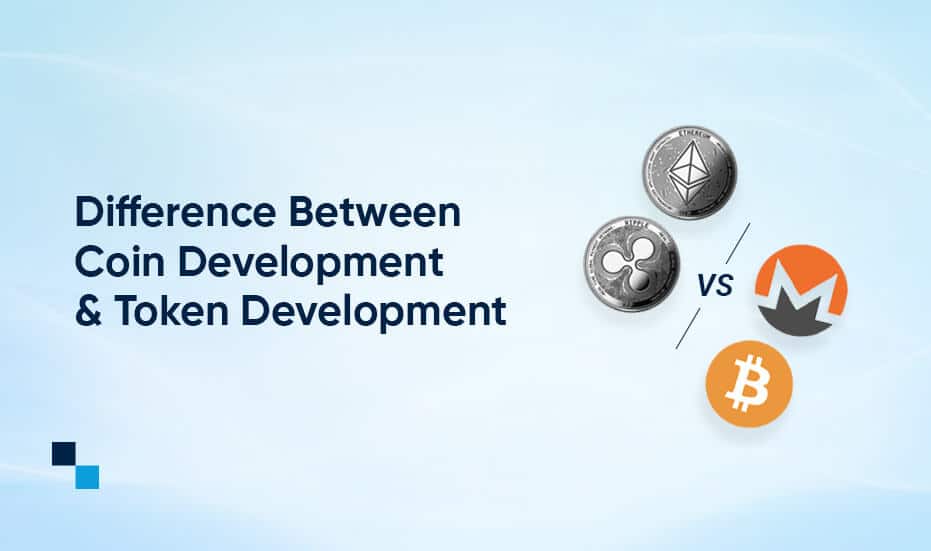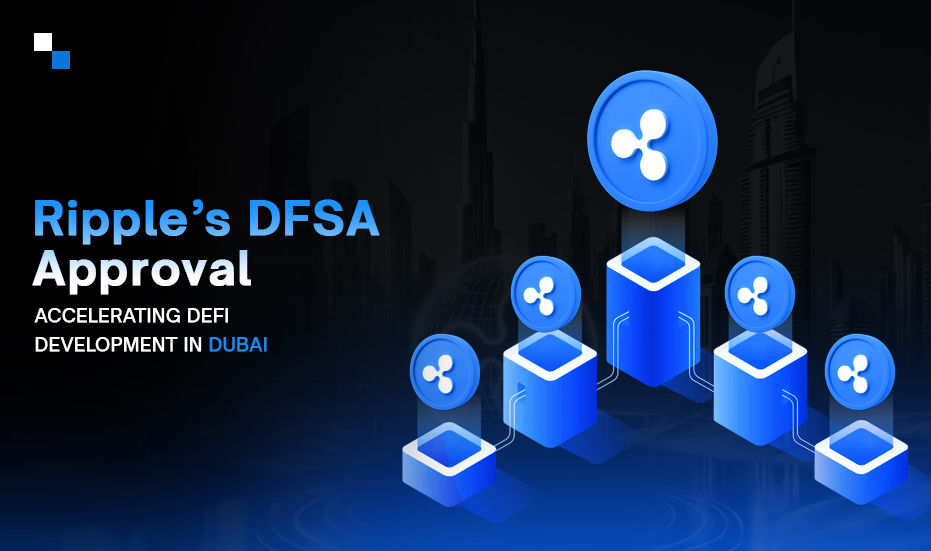
Decentralized Wallet development: Why is it gaining Popularity
March 11, 2021
Key Features to Look for in White Label Crypto Exchange
March 15, 2021Tokens and coins are two terms that are often used interchangeably in the cryptocurrency sphere. However, there is a spectrum of difference between the two and their development methodology too.
What is a coin?
In simple words, a coin is a cryptocurrency that is native to an independent blockchain. For example, Bitcoin is a coin on the Bitcoin blockchain. These are built to be a part of the blockchain right from the scratch.
Furthermore, these exist as a censorship-resistant store of value and medium of exchange on the blockchain. For example, ETH is a native coin of the Ethereum blockchain. It is used to send/receive value, pay gas fees and interact with dApps on the Ethereum network. Additionally, the coins also follow a secure and fixed monetary policy.
Use cases of coins
• Transfer money
• Used as a store of value
• Used as a unit of account
Tokens
Unlike a coin, a token does not have its own blockchain. It runs on another blockchain and uses the unique token standard of a blockchain like Ethereum. For example, the ERC-20 token standard is one of the standards that fueled the ICO craze of 2017.
An example of a token is DAI, which is a token used on MakerDAO dApp built on the Ethereum blockchain. Basically, it uses the standard of Ethereum blockchain but serves purposes that are specific to MakerDAO dApp.
Types of tokens
Businesses can leverage token development services to build the following types of tokens:
Security tokens – Security tokens can be used to represent the share of a company. While these act like normal securities, they bring the advantages of blockchain technology to company shares.
Asset tokens – These tokens are backed by real-world assets like precious metals.
Stable coins – To combat the volatility of cryptocurrencies, stable coins were introduced. These are tokens that are backed by currencies like USD, EURO, or more.
Non-fungible tokens (NFTs) – NFTs are tokens that represent some unique items like an art piece, a gaming asset, or a tokenized real estate.
How are coin Development services different from token development services?
Coin Development services entail an extensive process. It requires a team of expert blockchain developers who can either create a blockchain right from scratch or fork an existing blockchain.
For a quick turnaround, using an existing blockchain with a fork approach is advisable. This is because an existing blockchain is time-tested and reliable enough to support a new coin altogether. By developing smart strategies existing blockchains like Bitcoin, Ripple, Ethereum, NEO, Litecoin, Stellar and more can be used to shape an entirely different protocol. This protocol can be designed to support a new coin that has different features, monetary policies, and uses.
Developing a new coin that is native to an entirely new blockchain requires deeper expertise in blockchain. Right from choosing the consensus mechanism to building the internal architecture, it all needs to be worked out.
Token development
Token development is comparatively lesser extensive than coin development. However, before we leverage token development services to begin with token development, the following aspects need to be considered:
How cost-effective do you want the token transactions to be?
Before a token is developed, one needs to pick a blockchain on which the token will run based on cost-effectiveness. For example, the usage of a TRC-20 token will be more cost-effective than an ERC-20 token.
What should be the transactional throughput of the blockchain?
Based on the use-case of the token, the underlying blockchain needs to be decided upon. A blockchain like Binance Smart Chain or Tron is capable of executing transactions at a faster speed. As a result, the tokens running on these blockchains will enjoy higher speed.
Degree of transparency, security, and immutability required
Based on the scale of transparency, security, and immutability required to support the use-case of the token, the underlying blockchain must be decided.
Along with choosing the blockchain on which the token will run, token development includes the following things:
• Wallet Development
Any new token should be supported by a wallet to support its trade or storage. Thus, a multi-currency wallet is essential.
• Whitepaper Creation
A whitepaper is required to put across the use case of the token to the investors, traders, and token users. Apart from the requirement, it states the tokenomics of the token, the team details, and more.
• Smart Contract
To automate the usage of the token in the ecosystem, the complete process, transactions, and contract terms can be programmed into a smart contract.
Conclusion
Cryptocurrencies like coins and tokens are rapidly becoming the best alternative for fiat currency. That’s because they offer benefits that go beyond just the transfer of value.
If you are planning to build a coin or token, Antier Solutions can help. We offer comprehensive token and coin development services – from ideation, coin/token design conceptualization, white paper creation to coin/token development, launch and marketing.
Connect with our subject matter experts to share your business needs.



